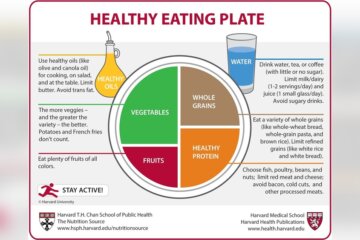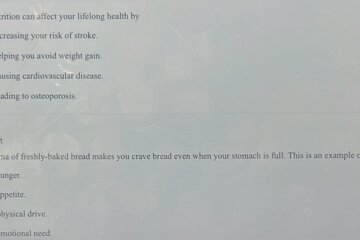what to do when calcium supplements cause constipation: Switch to calcium citrate and increase dietary fiber to alleviate constipation from calcium supplements. Stay hydrated and stay active.
Calcium supplements can be essential for bone health, especially for those who don’t get enough calcium through diet alone. Unfortunately, some people experience constipation as a side effect. Switching to calcium citrate, which is easier on the digestive system, can help.
Increasing dietary fiber, drinking plenty of water, and regular physical activity can also mitigate this issue. These steps not only promote better digestion but also ensure that your body absorbs the calcium effectively. With the right adjustments, you can continue to benefit from calcium supplements without the discomfort of constipation.
The Calcium-constipation Connection
Calcium is vital for strong bones and teeth. But, calcium supplements can cause unwanted side effects. One of these side effects is constipation. Understanding the link between calcium and gut health can help manage this issue.
Calcium Supplements And Gut Health
Calcium supplements can impact gut health. Some people find that calcium supplements affect their digestive system. This can lead to discomfort and irregular bowel movements.
Not all calcium supplements are the same. Some forms, like calcium carbonate, are more likely to cause constipation. Calcium citrate is often gentler on the stomach.
It is important to choose the right type of supplement. This can make a big difference in how your body reacts.
Why Constipation Occurs
Calcium supplements can slow down the digestive process. This happens because calcium can bind with other food particles in the stomach. This binding makes it harder for the body to digest.
This slow digestion can result in hard stools. When stools are hard, it is difficult to pass them. This can cause pain and discomfort.
There are ways to manage constipation caused by calcium. Drinking more water helps. Eating more fiber-rich foods also makes a difference. Choosing the right type of calcium supplement is key.
| Type of Calcium | Likelihood of Constipation |
|---|---|
| Calcium Carbonate | High |
| Calcium Citrate | Low |
- Drink plenty of water.
- Eat foods rich in fiber.
- Choose calcium citrate supplements.
- Exercise regularly.
- Start with a low dose of calcium.
- Gradually increase the dosage.
- Monitor your body’s response.
Managing constipation is possible. With the right steps, you can benefit from calcium without discomfort.
Identifying Constipation Symptoms
Calcium supplements can cause constipation. Knowing the signs is essential for your health. Early identification helps in taking timely action.
Common Signs Of Constipation
Constipation can show in many ways. The most common signs include:
- Infrequent bowel movements: Going less than three times a week.
- Difficulty passing stools: Straining or feeling blocked.
- Hard or lumpy stools: Stools that are hard to pass.
- Feeling of incomplete evacuation: Not feeling empty after a bowel movement.
- Abdominal discomfort: Pain or bloating in your belly.
When To Seek Medical Attention
Sometimes, constipation needs medical help. Look for these signs:
- Severe pain: Intense pain in the abdomen.
- Blood in stools: Seeing blood when you pass stools.
- Unexplained weight loss: Losing weight without trying.
- Long-lasting symptoms: Constipation lasting more than three weeks.
- Vomiting: Feeling sick and vomiting.
If you notice any of these signs, talk to a doctor. Early treatment can prevent complications.
Dietary Adjustments For Constipation Relief
Calcium supplements are helpful for bone health, but they can cause constipation. Making dietary changes can help. Here are some tips to manage constipation caused by calcium supplements.
Fiber-rich Foods To Include
Eating foods high in fiber can ease constipation. Fiber helps move food through the digestive system. Here are some fiber-rich foods to add to your diet:
- Fruits: Apples, pears, and berries
- Vegetables: Broccoli, carrots, and spinach
- Whole Grains: Oats, brown rice, and whole wheat bread
- Legumes: Beans, lentils, and chickpeas
Include these foods in every meal. They can make a big difference in your digestive health.
Hydration: Water Intake Importance
Drinking enough water is crucial when dealing with constipation. Water helps soften stools, making them easier to pass. Aim to drink at least 8 glasses of water a day.
Here are some tips to increase your water intake:
- Carry a water bottle with you
- Drink a glass of water before each meal
- Add slices of fruit to your water for flavor
Staying hydrated can help prevent constipation and improve your overall health.
| Food | Fiber Content |
|---|---|
| Apple (with skin) | 4 grams |
| Broccoli | 5 grams |
| Oats | 4 grams per cup |
| Chickpeas | 12 grams per cup |

Credit: blog.algaecal.com
The Role Of Physical Activity
Constipation can be an uncomfortable side effect of calcium supplements. Physical activity plays a significant role in relieving this issue. Exercise helps stimulate the digestive system, promoting regular bowel movements. Let’s explore how different exercises and routine recommendations can help combat constipation caused by calcium supplements.
Exercise Types To Stimulate Digestion
Certain types of exercises are particularly effective in stimulating digestion. Here are a few:
- Walking: A simple yet effective exercise. Walking helps move food through the digestive tract.
- Yoga: Specific poses like the wind-relieving pose can help ease constipation.
- Swimming: The gentle movement of swimming can aid digestion.
- Abdominal Exercises: Crunches and leg raises can stimulate digestive muscles.
Routine Recommendations
Incorporating physical activity into your daily routine can greatly help in managing constipation. Here are some recommendations:
- Daily Walks: Aim for at least 30 minutes of walking every day.
- Yoga Sessions: Include a 20-minute yoga session focusing on digestion-friendly poses.
- Hydration: Drink plenty of water before and after your exercises to help digestion.
- Consistency: Maintain a consistent exercise routine to see the best results.
Remember, integrating these physical activities into your daily life can help mitigate the constipation caused by calcium supplements. Regular exercise not only aids digestion but also promotes overall health.
Supplement Selection And Dosage
Choosing the right calcium supplement and proper dosage is crucial. The wrong choice can lead to constipation. This section will guide you on how to pick the best supplement and use safe dosage practices.
Choosing The Right Type Of Calcium
Different types of calcium supplements exist. Common types include calcium carbonate and calcium citrate. Each has its own benefits and potential side effects.
- Calcium Carbonate: Requires stomach acid for absorption. Best taken with food. May cause more constipation.
- Calcium Citrate: Easier to digest. Can be taken on an empty stomach. Less likely to cause constipation.
Calcium carbonate is often cheaper and contains more calcium per pill. Calcium citrate is more expensive but easier on the stomach. Choose based on your body’s response.
Safe Dosage Practices
Proper dosage is vital to avoid side effects. Adults generally need 1,000-1,200 mg of calcium per day. Splitting doses can improve absorption and reduce constipation.
| Age Group | Recommended Daily Dosage |
|---|---|
| Children (1-3 years) | 700 mg |
| Children (4-8 years) | 1,000 mg |
| Teens (9-18 years) | 1,300 mg |
| Adults (19-50 years) | 1,000 mg |
| Adults (51+ years) | 1,200 mg |
Take calcium supplements in small doses throughout the day. Avoid taking more than 500 mg at once. Drink plenty of water to help prevent constipation.
Consult your doctor before starting any supplement regimen. Your doctor can help determine the best type and dosage for you.

Credit: www.livestrong.com
Alternative Calcium Sources
Calcium is essential for strong bones and teeth. If calcium supplements cause constipation, try alternative sources. Below, we explore some natural and fortified options to maintain your calcium intake.
Calcium-rich Foods
Many foods are naturally high in calcium. These options can help you avoid constipation from supplements. Here are some excellent choices:
- Dairy Products: Milk, cheese, and yogurt are rich in calcium.
- Leafy Greens: Kale, spinach, and collard greens are excellent sources.
- Fish: Sardines and salmon, especially with bones, provide a good amount of calcium.
- Nuts and Seeds: Almonds and chia seeds are calcium-rich.
- Beans: White beans and chickpeas contain significant calcium levels.
Fortified Foods And Their Benefits
Fortified foods have added nutrients, including calcium. These can be a great alternative if you’re avoiding supplements. Here’s a list of fortified foods and their benefits:
| Food | Benefits |
|---|---|
| Fortified Orange Juice | Provides a significant calcium boost and vitamin C. |
| Fortified Cereals | Often include added calcium and other essential vitamins. |
| Fortified Plant-Based Milks | Almond, soy, and oat milk often contain added calcium. |
| Fortified Tofu | A great source of calcium for vegetarians and vegans. |
| Fortified Bread | Some breads have added calcium to support bone health. |
Probiotics And Digestive Health
Calcium supplements can sometimes cause constipation. This can be uncomfortable. To help, consider adding probiotics to your diet. Probiotics are good bacteria that help your gut stay healthy.
The Benefits Of Probiotics
Probiotics offer many benefits for digestive health. They help balance the good and bad bacteria in your gut. This balance can improve digestion and reduce constipation.
Probiotics can also boost your immune system. A strong immune system helps your body fight infections. Good digestion and a strong immune system work together to keep you healthy.
Probiotic Sources And Supplements
There are many sources of probiotics. You can find them in foods and supplements. Here are some common sources:
- Yogurt: A popular probiotic-rich food. Look for yogurt with live and active cultures.
- Kefir: A fermented milk drink. It contains many probiotics.
- Fermented Foods: Sauerkraut, kimchi, and miso are good choices.
- Probiotic Supplements: Available in capsules, tablets, and powders. They can be an easy way to get probiotics daily.
| Food | Probiotic Content |
|---|---|
| Yogurt | Live and active cultures |
| Kefir | Multiple probiotic strains |
| Sauerkraut | Lactic acid bacteria |
| Kimchi | Lactic acid bacteria |
| Miso | Aspergillus oryzae |
Adding probiotics to your diet can help improve your digestive health. They can also help relieve constipation caused by calcium supplements. Try including probiotic-rich foods or supplements in your daily routine.
Lifestyle Changes For Long-term Relief
Calcium supplements can sometimes cause constipation, which can be very uncomfortable. Making a few lifestyle changes can help provide long-term relief. These changes can improve your overall health and make your digestive system work better.
Stress Management Techniques
Stress can make constipation worse. Practicing stress management techniques can help your body relax and improve digestion. Here are some effective methods:
- Deep Breathing Exercises: Take deep breaths in through your nose and out through your mouth.
- Yoga: Gentle yoga poses can relax your muscles and improve blood flow.
- Meditation: Spend a few minutes each day meditating to clear your mind.
- Physical Activity: Regular exercise like walking or swimming can reduce stress levels.
Importance Of Regular Health Check-ups
Regular health check-ups are important to monitor your body’s response to calcium supplements. Your doctor can give you advice tailored to your specific needs. Here are some key aspects to consider:
| Aspect | Importance |
|---|---|
| Monitor Calcium Levels | Ensures your calcium intake is within a healthy range. |
| Check Digestive Health | Identifies any underlying issues causing constipation. |
| Adjust Supplement Dosage | Allows your doctor to adjust your supplement dosage if needed. |
Regular check-ups can help catch any problems early and keep your health on track.
Medical Interventions And Treatments
Calcium supplements can sometimes lead to constipation. When this happens, it is important to know the medical interventions and treatments available. Understanding these options can help maintain both your calcium levels and digestive comfort.
Over-the-counter Remedies
Several over-the-counter remedies can help alleviate constipation caused by calcium supplements. These remedies are easy to find and use.
- Fiber Supplements: Adding fiber to your diet can help soften stools. Fiber supplements like psyllium husk are commonly used.
- Stool Softeners: These can make stools easier to pass. Docusate sodium is a popular choice.
- Hydration: Drinking plenty of water helps keep your digestive system moving.
- Probiotics: These can improve gut health and regularity.
When Prescription Medication Is Necessary
If over-the-counter remedies are not effective, a doctor may prescribe medication. Prescription options can provide more targeted relief.
- Laxatives: Stronger than over-the-counter options, prescription laxatives can help relieve severe constipation.
- Prokinetic Agents: These medications help the muscles in your digestive tract move more effectively.
- Osmotic Agents: These draw water into the bowel to soften stools. Lactulose is a common example.
Consulting with a healthcare provider is important. They can recommend the best treatment for your specific situation.
Preventing Constipation With Calcium Intake
Calcium is crucial for strong bones and teeth. But sometimes, calcium supplements can cause constipation. Preventing constipation with calcium intake is possible with the right strategies.
Balancing Supplements And Diet
To prevent constipation, balance your calcium supplements with a proper diet. Include foods rich in fiber. Fiber helps keep your digestion smooth.
| High-Fiber Foods | Calcium-Rich Foods |
|---|---|
| Whole grains | Dairy products |
| Fruits | Leafy greens |
| Vegetables | Nuts and seeds |
Drink plenty of water. Water helps fiber work better in your body. Make sure to eat a balanced diet every day.
Monitoring Your Body’s Response
Pay attention to your body’s signals. Keep a journal of your daily calcium intake. Note any signs of constipation.
- Check your bowel movements.
- Note any discomfort or changes.
- Adjust your diet and supplements as needed.
If constipation persists, consult your healthcare provider. They can help adjust your calcium intake. They may suggest alternative forms of calcium.

Frequently Asked Questions
How Do You Fix Calcium Constipation?
Increase your fiber intake, drink plenty of water, and exercise regularly. Consider magnesium supplements or natural laxatives like prunes. Consult a healthcare professional for personalized advice.
Is There A Form Of Calcium That Doesn T Cause Constipation?
Calcium citrate is less likely to cause constipation compared to calcium carbonate. It’s also easier to digest.
How Can I Reduce The Side Effects Of Calcium Supplements?
Take calcium with food to aid absorption. Choose calcium citrate for better digestion. Avoid high doses. Increase water intake. Consult your doctor.
Can Too Much Calcium And Vitamin D Cause Constipation?
Yes, excessive calcium and vitamin D can cause constipation. Balance your intake to avoid digestive issues. Consult a doctor.
Conclusion
Finding a solution to calcium supplement-induced constipation is crucial. Explore dietary changes, hydration, and alternative supplements. Consult your doctor for personalized advice. Addressing this issue will help you maintain better digestive health. Stay proactive and informed for optimal well-being.

“As the voice behind Radiant Glow Health, we are dedicated to being your ultimate wellness and vitality companion. Our mission is to inspire and guide you on your journey to a healthier and more vibrant life. Join us as we explore holistic health practices and empower you to radiate wellness from within.”



